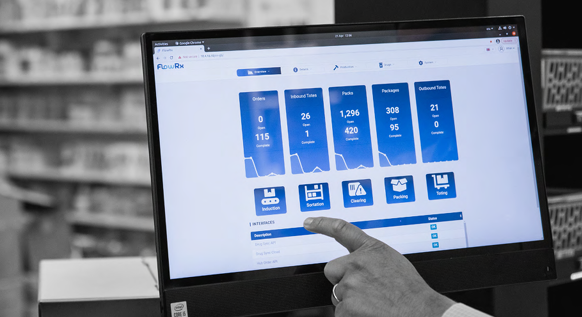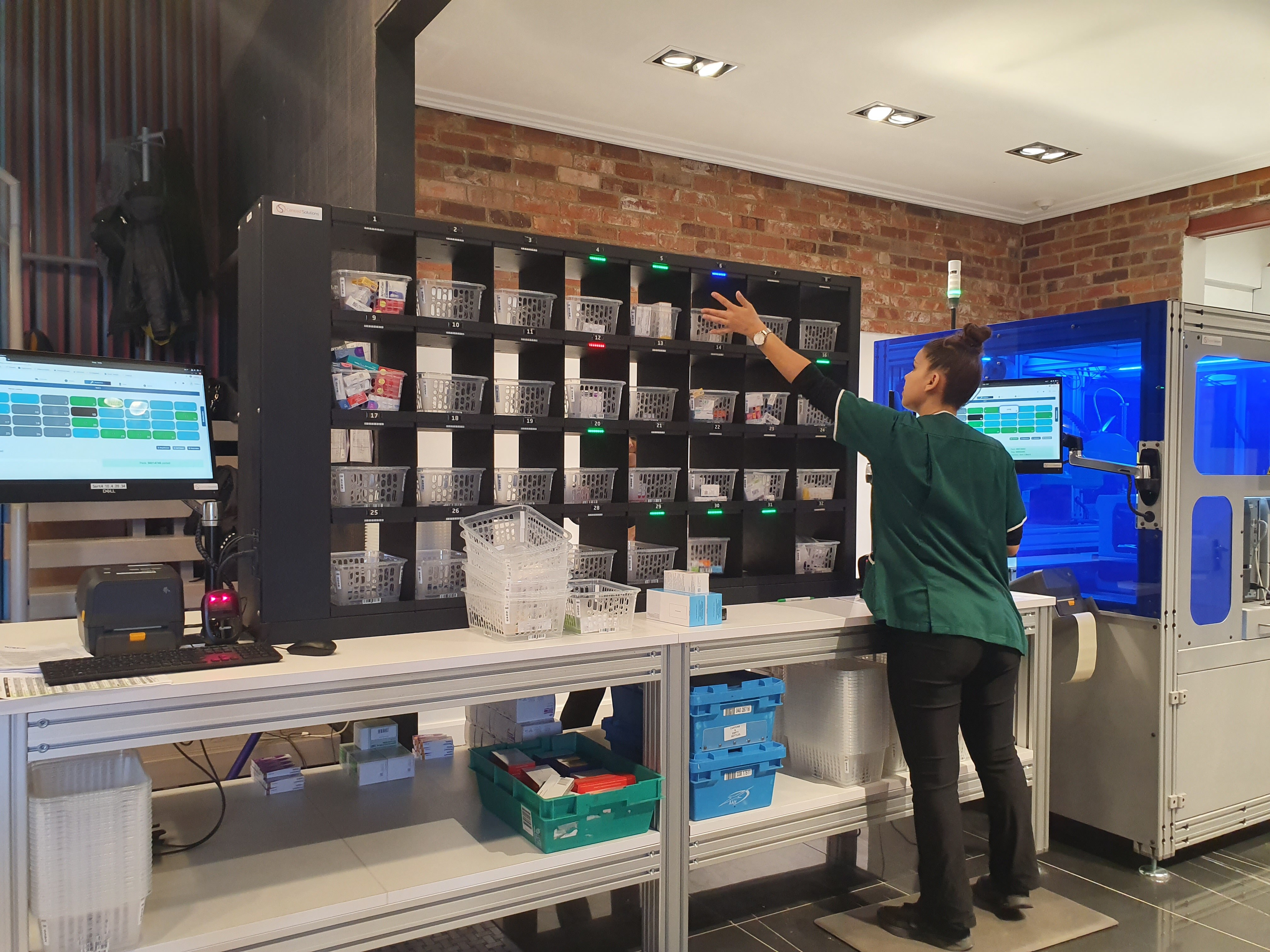The Government’s decision last week to give pharmacists the flexibility to reduce the need for split packs will result in even more efficient hub and spoke models. Here our Sales and Marketing Director, Louise Laban, explains more.
The need to split packs has always been a challenge for pharmacies wanting to adopt a hub and spoke model, not only from an efficiency perspective but also from a safety perspective. The announcement by the Government last week to amend legislation so pharmacists have the flexibility to supply more or less medication to dispense medicine in its original pack is a huge boost for those pharmacies looking to introduce hub and spoke.
The changes to the Human Medicines Regulations follow the outcome of the Government's 2021 consultation which was primarily aimed at patients receiving the patient information leaflet with their medication and at reducing the need for pharmacy teams to split boxes and repackage medicines.
However, with hub and spoke models now gathering pace across the pharmacy market and with secondary legislation, which allows hub and spoke dispensing across separate entities, expected later this year, this move is also a huge win in terms of efficiency. It could also be an indication that we are a step nearer to hub and spoke legislation being announced.
Split packs are incompatible with the majority of robotic systems often used in pharmacy. I’ve worked in pharmacy automation for many years and finding a solution for split packs has long been a sticking point. By taking the decision to reduce the number of split packs the headache is taken away and a greater volume of medication can be dispensed by pharmacy, particularly in a hub environment.
Around 80% of medications for repeat prescriptions are typically fulfilled by a pharmacy hub with any exceptions, such as split packs or controlled drugs, topped up in store. The move to reduce the number of split packs will mean the percentage of medications for repeat prescriptions fulfilled by the hub will now inevitably increase.
While the legislative change won’t mean an end to split packs altogether, it will lead to a substantial reduction with pharmacists now being given the autonomy to make the right decision for patients. Under the new rules, pharmacists can dispense up to 10% more or less than has been prescribed to dispense a patient’s medicine in the original pack, except where this would “negatively affect the patient's clinical treatment regimen”. It will not however apply to controlled drugs.
The regulatory changes apply to the UK as a whole and a “transitional provision” will be made in England, Wales and Northern Ireland so the administrations can decide how they want the changes to apply to their respective NHS services. In Scotland, OPD flexibility will apply with immediate effect.
We already know from our evidence that hub and spoke models are freeing up significant time in store from logistical and administrative tasks for dispensing staff and pharmacies. This time is used instead to deliver patient-facing services to generate more revenue. Look at the difference hub and spoke made to one Paydens Pharmacy store in our latest case study.
Allowing pharmacies to dispense more medicines in their original packs will help them to become even more efficient and free up more time for clinical services. In the consultation into hub and spoke dispensing last year, we strongly recommended reducing the number of split packs because if original pack dispensing was not enabled then the potential efficiencies of hub and spoke dispensing would be curtailed. Automated processes rely on being able to dispense full packs for patients. This decision opened hub and spoke up as an accessible option for even more pharmacies as it means more patient prescriptions can be put through the hub, allowing for a greater impact and return on investment.
There is also the safety element. Dispensing medication in its original pack makes it easier for pharmacies to ensure patients receive the patient information leaflet with their medication, providing invaluable information on safe and effective use of the medication they are taken. There are also the additional safety benefits from being able to use automation to dispense packs as technology and software acts as an invaluable safety net for overstretched pharmacy teams and reduces the risk of human error.
The 10% flexibility being introduced by the legislation will have minimal impact on the patient and will most likely mean they will just access their prescription either a few days earlier or a few days later than they would have done, dependent on whether the original pack dispensed was rounded up or down. The figure of 10% gained significant approval during the consultation with 63% of respondents agreeing that this was the most appropriate margin of flexibility.
While all this is a step in the right direction, the finer details will need to be established. For example the possible impact of these legislative changes on the reimbursement of pharmacy contractors. However, overall the legislation change will be a huge boost for pharmacies looking to move to hub and spoke to create efficiencies in store and to patients who are looking to pharmacy more and more for support.
Pharmacy Automation By Centred Solutions
At Centred Solutions, we offer a range of pharmacy automation software to support your pharmacy. Whether you are a standalone pharmacy that could benefit from your own mini hub or you need support managing patient medication from a wholesaler or warehouse, we have the solution for you.
Contact us today to arrange a demonstration of any of our products.




